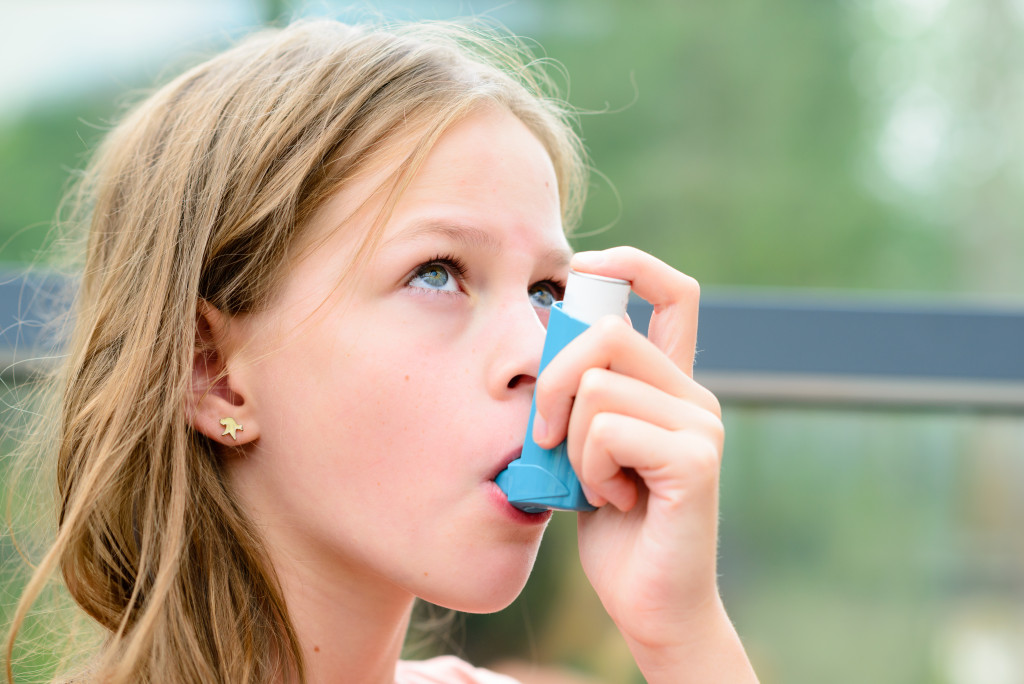Asthma is a lifestyle disease. It usually stays with the person who has it for a very long time. Some people who have asthma can even have it for the rest of their lives.
The early onset of asthma usually happens in childhood. It eventually transitions to adulthood. Some certainly outgrow these diseases but don’t consider your kid lucky because they’ll probably have it for the rest of their lives. Here’s what you need to know about asthma and children.
Asthma and Children
Asthma is the most common respiratory disease in the US, affecting more than 25 million Americans. It’s also more common among children, especially those who’ve newly entered the early stages of childhood.
The nature of asthma is genetics. Parents who have asthma are likely to pass them to their children. The triggers of this asthma can also be similar to the parents who have them. Later on, this will help you identify your kid’s triggers. However, your kid’s triggers can also be unique, so you can never go wrong with getting a check-up.
Get Check-ups Often
Getting check-ups is one way to identify that your child has asthma and not some other respiratory disease. It’ll also help treat any other comorbidities your kid might have alongside their asthma.
If you’re a parent who’s unaware of what asthma is, getting a check-up will also help you know more about the nature of this disease. It isn’t inherently fatal, but it can hurt your kid and even damage their lungs if left untreated. Also, you shouldn’t think that asthma would eventually go away. This is a myth, and no clear scientific studies claim a cure for this disease. So no, there is no reliable way of knowing when your kid’s asthma would disappear eventually or not.

Identify and Avoid Triggers
Identifying triggers is one of the essential things you need to do as a parent, especially when your child is too young to understand what triggers are. Feel free to visit an allergy test clinic for this. They can make this process a lot easier. Furthermore, some allergies have unique complications. For example, a peanut allergy can exist with other forms of allergy, such as dust mite allergy.
Being able to identify your child’s triggers is already half the battle. It’ll help you avoid these triggers. It’ll also help you educate your child regarding their triggers. This will help them avoid the triggers whenever you’re not around, especially when they’re in school or on a field trip.
Identifying and avoiding triggers is an essential step in making your kid independent of you. Once they’ve learned more about their triggers, they’ll be able to handle themselves and their asthma.
Teach Your Kid How to Take Their Meds
Another step in making your child take care of themselves during asthma attacks is to teach them how to take their meds. Asthma is a highly treatable disease, and the meds used for this particular disease aren’t too complicated to take.
Let’s be honest here. You and your kid can’t avoid their trigger 24/7. Sometimes the trigger can get the best of both of you, especially when the trigger is seasonal. Teaching your kid how to take their meds can be a lifesaver during these cases. It’ll give you the peace of mind you need, knowing that your child knows how to handle their asthma whenever it does attack.
Flare-ups
You should keep an eye out for flare-ups. Early signs of flare-ups are shortness of breath, wheezing, and coughing. Some flare-ups may be unique to a particular allergen, and it’s vital that you take note of them.
Once you’re able to identify your child’s flare-up consistently, then you’re able to treat asthma immediately. Furthermore, it will help you determine when asthma will be severe that you’ll have to take your kid to the hospital.
Once you can identify the early signs of flare-ups, you can teach your child to be aware of them. It’ll help them know when’s a good time to take their meds so their asthma wouldn’t be too severe, or maybe visit the clinic if they think that the asthma attack is too much for them to handle.
Asthma Action Plan
Lastly, it’s important to have an asthma action plan. This is unique to every parent, but one way you can create this action plan is by communicating with your child. List down their allergens and the early signs of their flare-up. Create a flow chart of what you need to do and what your kid has to do. This transparency can help you and your kid handle asthma as a team.
Helping your kid handle their asthma can carry on once they grow older. It’ll help them grow even more independent and teach them the fundamentals of taking care of themselves. There’s also a good chance that your child will outgrow their asthma. It’s one of those diseases that tend to fade away for some people after years of treatment. However, if it doesn’t happen to your kid, then at least you’ve taught them how to live their life with asthma.
